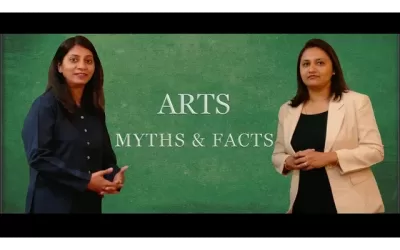What is Liberal Arts?
When Can I Enroll for Liberal Arts?
COURSE | ELIGIBILITY | DURATION |
B.A Liberal Arts | 10 + 2 | 3-4 Years |
B.Sc. Liberal Arts | ||
M.A. Liberal Studies | The Eligibility criteria is as per the Universities offering Masters Program | 2-3 Years |
What Personality Traits Are Required to Study Liberal Arts?
Personality traits would vary according to major subjects that one takes but some common personality traits are as follows:
- Good communication skills
- Pleasant personality
- Flexibility
- Innovation
- Patience
- Creativity
- Problem Solving
What Aptitude Is Required to Study Liberal Arts?
- Abstract Reasoning
- Verbal Reasoning
- Space Relation
IQ Required to Study Liberal Arts?
Job Prospects in Liberal Arts Career
- Media
- Politics
- Archeology
- Social Work
- Psychology
- Public Relations
- Designing
- Education
Frequently Asked Questions Liberal Arts
1. What is liberal arts education?
Liberal arts education is a well-rounded approach to learning that focuses on a wide range of subjects, including humanities, social sciences, natural sciences, and the arts. It emphasizes critical thinking, communication skills, and a broad understanding of various disciplines.
2. What are the core subjects within liberal arts education?
Core subjects typically include literature, history, philosophy, mathematics, natural sciences, social sciences, and the arts. Liberal arts programs encourage exploration of these areas.
3. What skills does a liberal arts education emphasize?
Liberal arts education emphasizes critical thinking, problem-solving, effective communication, creativity, adaptability, and a strong foundation in various subjects.
4. What are the benefits of a liberal arts education?
Benefits include a well-rounded education, enhanced communication skills, adaptability in various career paths, preparation for lifelong learning, and the ability to think critically and solve complex problems.
5. Is a liberal arts education suitable for specific career goals or industries?
Yes, a liberal arts education can be beneficial for various career paths, including business, law, education, healthcare, and the arts. It provides a strong foundation for a wide range of professions.
6. Are there disadvantages to pursuing a liberal arts degree?
Some perceive potential disadvantages as it may not offer specialized training for certain professions. However, many employers value the skills developed through a liberal arts education.
7. Can you specialize within a liberal arts education program?
Yes, many liberal arts programs allow students to choose concentrations or majors within the liberal arts umbrella, focusing on specific areas of interest.
8. How does a liberal arts education compare to a vocational or specialized degree?
Liberal arts education focuses on broad knowledge and transferable skills, while vocational or specialized degrees provide specific training for particular careers. The choice depends on individual goals and interests.
9. Can a liberal arts degree lead to a successful career?
Yes, a liberal arts degree can lead to a successful career by providing a strong foundation in critical skills and knowledge that are highly valued by employers.
10. Are there famous individuals who have benefited from a liberal arts education?
Yes, many successful individuals, including CEOs, politicians, writers, and artists, have pursued liberal arts education and credit it with their success.
11. What types of jobs can you get with a liberal arts degree?
Jobs vary widely and can include roles in education, marketing, journalism, consulting, public relations, non-profit organizations, and more.
12. Is a liberal arts education expensive?
Tuition costs for liberal arts programs can vary, but financial aid and scholarships are often available to help make it more affordable.
13. Can you continue your education after completing a liberal arts degree?
Yes, many students pursue graduate studies in specialized fields after completing a liberal arts undergraduate degree.
14. How can I choose the right liberal arts program or college for me?
Factors to consider include your academic interests, career goals, location preferences, and available resources such as financial aid.
15. Are online liberal arts programs a good option?
Online liberal arts programs can be a convenient option for some students, but it’s essential to research and choose reputable institutions that offer quality education.



